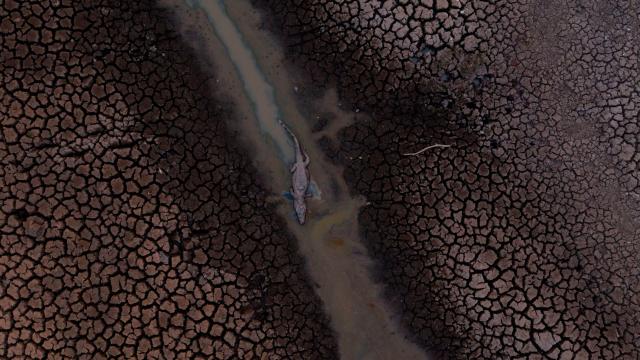When the scientists who warned the world last year that 1 million species face extinction issue a new warning about the “pandemic era,” we should probably listen.
On Thursday, the Intergovernmental Platform on Biodiversity and Ecosystem Services released a new report chronicling how human activities have created unprecedented risks for pandemics and other zoonotic diseases. It also lays out how we can stop them at a fraction of the cost of inaction.
The report is the result of a workshop of dozens of scientists and practitioners working on public health and conservation. While covid-19 was the impetus for the report, it’s hardly the only reason we need to be thinking about how to save nature to save ourselves.
The novel coronavirus is one of a growing number of zoonotic diseases or those with animal origins that jumped to humans. The virus has killed nearly 1.2 million people worldwide, wrought economic havoc, and upended people’s lives. But it’s not alone. According to the new report, 70% of emerging diseases are zoonotic in nature, and there are up to 580,000 undiscovered animal-carried viruses out there that could infect humans.
If the current pandemic, along with other recent examples of Ebola and Zika virus, are any indication, we don’t want to tempt fate by making it easier for any of those viruses to find human hosts. Yet the path we’re on right now is setting up our immune systems for a battle with more dangerous diseases.
While animals are carriers of diseases that affect humans, they’re not the ones to blame for the transmissions. Instead, it’s human activities. Deforestation, the wildlife trade, and climate change are among the biggest factors driving the increase in the threat of a new pandemic. Those factors are all driving humans and animals into closer proximity and competition for dwindling resources. In the case of climate change, rising temperatures are also allowing tropical animals and diseases such as malaria to spread toward the poles. As the report notes, increasingly inhospitable weather could also force people to migrate from places that become flooded, too hot to live, or too dry to farm, bringing novel diseases with them in the process.
Business as usual is clearly not working to stunt the spread of disease nor the societal damage that comes with it. The current coronavirus pandemic is expected to be a $US16 ($23) trillion drag on the economy this year alone. Embedded within that big figure are countless stories of people losing their livelihoods, evictions and utility shutoffs, missed time with friends and learning, and millions who have lost loved ones. The burdens have also been borne disproportionately by poor, communities of colour, worsening inequality. The impacts of the virus are as unsustainable as the conditions that created the pandemic.
“It’s not as simple as we need more money to work on vaccines,” Peter Daszak, the president of EcoHealth Alliance and report author, said in a press call. “This is a fundamental, system problem because we have unsustainable economic growth around the world.”
The findings in the report point to a need to increase global spending on surveilling new zoonotic diseases to $US40 ($57) billion to $US58 ($82) billion annually. It’s a small price to pay compared to the damages of the coronavirus let alone the estimated $US1 ($1) trillion in damage caused by other zoonotic diseases each year.
“If you put $US1 ($1.40) into prevention, you get $US100 ($142) in return. Why aren’t we doing this?” Daszak said.
In addition, it calls for policies to cut down and regulate the wildlife trade, which sends millions of animals streaming around the world every year (including 10 million to 20 million wild animals imported into the U.S. alone). But there are also bigger picture recommendations that get at how much needs to change in the coming decades when it comes to our relationship with nature. Widespread ecological restoration is needed so animals have habitat further from us, land use planning needs to take public health into account, and we need to repair our relationship with Indigenous communities to integrate traditional knowledge into the medical response to disease as well as protecting ecosystems to make sure diseases don’t emerge in the first place.
Societally, there also needs to be a huge shift in consumption. Rainforest is being felled to plant oil palms or soybeans. Climate change is driven largely by wealthy overconsumption of everything from plane trips to new phones. The report calls for “transformative change,” echoing the landmark report the group put out last year. Which if the choice is a new phone and the fate of 1 million species and human life as we know it, is a pretty clear one.
